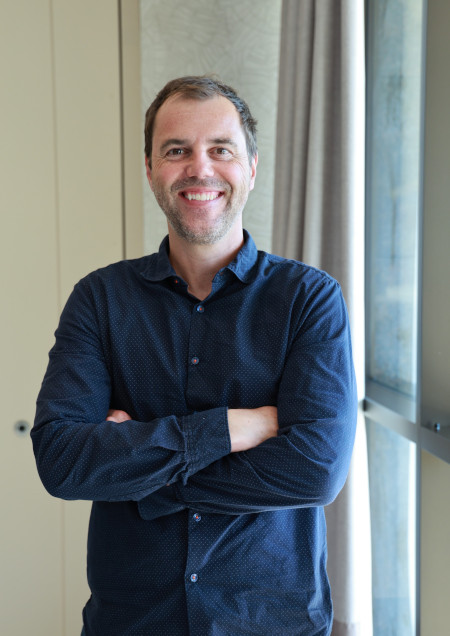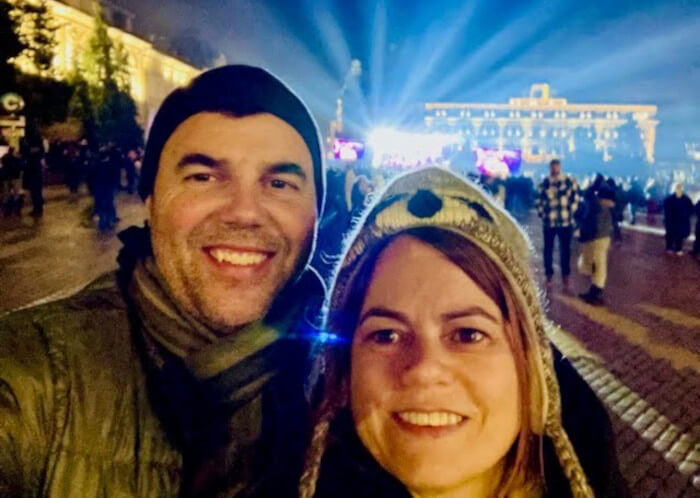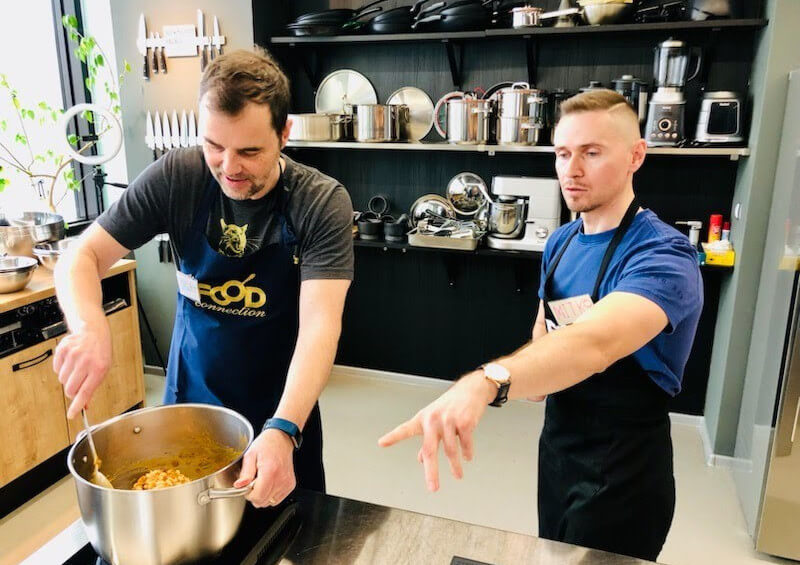
As a US journalist with a thirty-year career in radio production and media strategy, Graham Griffith has always been interested in what is happening in the world. His work with media heavyweights WNYC – New York Public Radio, Public Radio International, the BBC World Service, The New York Times, and National Public Radio (NPR) and on award-winning radio programs On Point (created by him and touted by listeners as “one of the best things on US radio waves”) and The Takeaway has helped shed light on international developments since the mid-1990s.
For the past half a year, Graham has lived in Sofia, Bulgaria, in the hopes of understanding how this part of the world shapes global events — as well as how it can contribute to resolving challenges faced by all of humanity. What is more, Graham hopes to bring that understanding to audiences back home. His weekly Notes from New Europe newsletter not only injects a Southeast European perspective into news headlines but also explains the region’s importance for the future of Europe and the world as a whole.
“In the coming months, I hope to share how my learning and listening in this region helps me reset my understanding of global shifts and opportunities,” Graham writes in his introductory Note.
He does a lot of listening and learning at the Center for the Study of Democracy, a Bulgaria-based pro-democracy think tank, where he is a visiting scholar on a US Fulbright Program fellowship. “Those of us in the West have ignored the deep knowledge of scholars in New Europe, at our own peril. If the 2020 [COVID pandemic] has taught civil society anything, it is to pay attention to experts, and… so much of what is happening in the world I would understand significantly better if I talked to more people from around here,” Graham says.
So he does, extensively. More importantly, his work at the Center is focused on encouraging global media professionals to connect with Balkan experts as well.
Letting light in
Graham spent the first two decades of his career as a radio producer, designing programs on themes as varied as technology companies’ ability to influence how we live, immigration, social disparities in the United States, and the far-reaching impact of 9/11.
Over time, he grew disillusioned with traditional media, saying that, by privileging some perspectives over others, “journalism has failed to do what the public needs from it.” He thinks that journalists should “help people make sense of the increasingly complicated communities we live in [and] a changing world.” Instead, media organizations in the 1990s and 2000s, at least those in the United States, largely remained in the past. They gave a platform to pundits that didn’t represent the United States’ growing diversity and failed to acknowledge the world’s interconnectedness.
This is why, about a decade ago, Graham transitioned from journalism to teaching and media consultancy. In these roles, he has helped driven individuals and civically minded organizations get their messages across through the means of storytelling, audio or otherwise.
“Instead of waiting for us in newsrooms to be able to do the right thing, sometimes the solution is to go to the people who have the information — the people we used to turn to as sources — and get that directly to the public,” he says.

“We need to model better discourse through curious conversations with people who aren’t just jumping from topic to topic. For example, by now we have to realize that [the media’s] careful, false binary coverage of climate change was not quality journalism. So collaborations with experts and organizations that spend all their time trying to find ways through this crisis could help us provide people with useful information and data and model ways we can all speak about opportunities to face the challenge less from a position of fear and helplessness and more oriented on little steps we can take together,” Graham adds.
To encourage “curious conversations” about critical issues such as climate change, inclusiveness, and disinformation, he worked with organizations and advocacy groups like EmbraceRace, Cengage Learning, and the On Being Project, among others. Importantly, Graham was part of the team that developed Sound Up, digital music company Spotify’s effort to support more creators from historically underrepresented communities.
Different as those organizations are, what unites them is their focus on solutions. This is something most traditional media, in their pursuit of “crisis reporting” and emphasis on problems, are failing to address, Graham says.
“I want to be the person who introduces something that moves you from this strictly scared-way-to-anxiety space to seeing a little light. I know how earnest that sounds, but there is the Leonard Cohen line: ‘There is a crack in everything. That’s how the light gets in.’”
It is Graham’s firm belief that “as journalists, it is our responsibility to let light in, rather than report on darkness all the time.”

On the power of listening
An idea Graham came across in one of his many exchanges in Sofia suggests that there has long been a “global conversation,” an exchange of ideas, among philosophers who never met. In the last 100 years, ideas spread globally quite quickly, thanks more to radio than anything else.
This notion appealed to Graham and not just because he is a radio man; radio has the power to advance good ideas.
“Radio, and audio more generally, is a powerful medium largely because of how it uses storytelling and narrative, with neither the static nature of print nor the distractions of television. In the wrong hands, it has proven highly destructive. In the right hands, it can be highly effective and maybe the best tool for helping people actively make sense of complicated issues,” Graham says.
In his consulting work, he helps clients deploy audio’s power and “tell stories that the public needs to hear.”
But there is work to be done on the listener end as well, Graham says. “What I hope we are developing, or will develop, is better listening habits. Reaching out to communities around the globe to listen to more perspectives (not opinions or punditry) from places unfamiliar to us. The Balkans are a great example of an area full of people who can help all of us appreciate some of the important nuances around the most important issues of the day… if we listen.”

